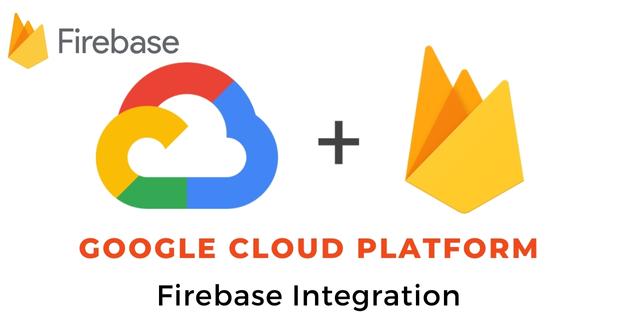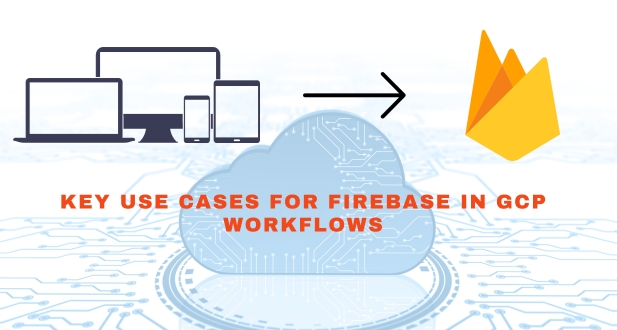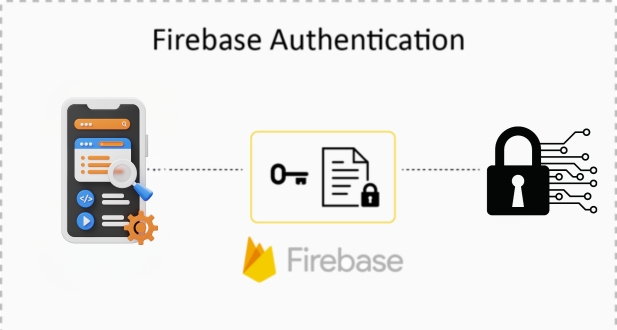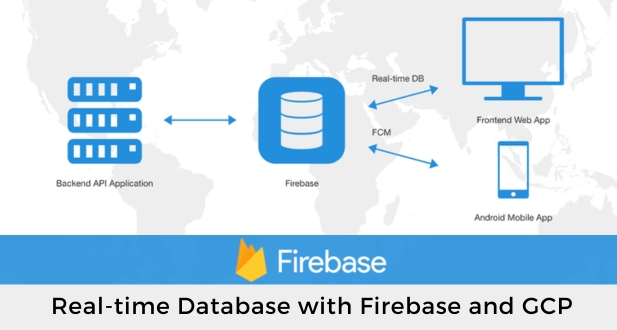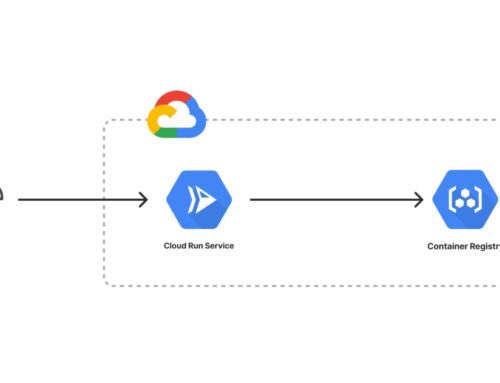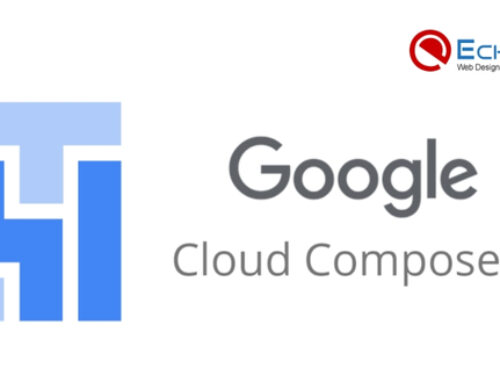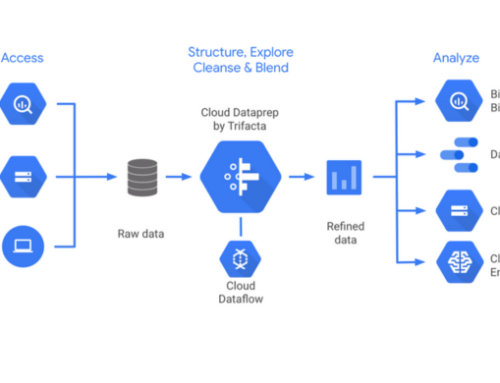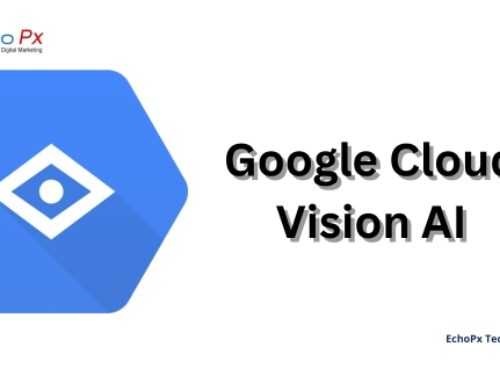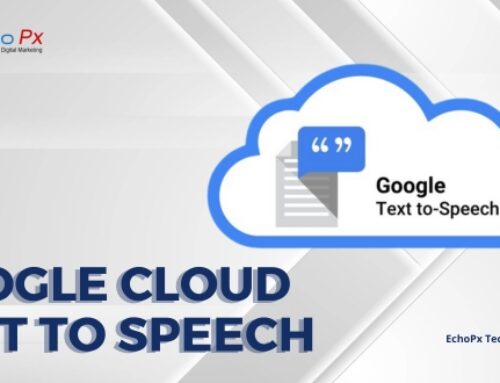Introduction to GCP Firebase Integration
Firebase, developed by Google, is a comprehensive mobile and web application development platform that offers a wide range of tools and services to developers. At its core, Firebase provides a scalable and real-time NoSQL database, authentication, hosting, and a variety of other features to streamline the development process.
The Firebase platform encompasses several key services and capabilities that contribute to its popularity among developers. These include:
- Realtime Database: Firebase offers a NoSQL cloud database that supports real-time data synchronization. This feature is crucial for applications requiring instant updates across various clients, making it particularly useful for collaborative and interactive applications.
- Authentication: Firebase simplifies user authentication by providing ready-to-use authentication services. Developers can seamlessly integrate features like email/password authentication, social logins, and single sign-on (SSO), enhancing the security and user management aspects of their applications.
- Cloud Functions: Firebase integrates with Google Cloud Functions, allowing developers to deploy serverless functions in response to events triggered by Firebase features or HTTP requests. This serverless architecture enables automatic scaling and efficient handling of background tasks.
The integration of Firebase with Google Cloud Platform (GCP) holds significant value for developers and businesses. By combining the strengths of Firebase’s frontend services with the robust backend services of GCP, organizations can create end-to-end solutions that scale seamlessly, ensuring a smooth user experience.
Key use cases for Firebase in GCP workflows include:
- Real-time Collaboration: Firebase’s Realtime Database facilitates collaborative features in applications, such as live document editing, chat functionality, and shared whiteboards.
- Serverless Microservices: Leveraging Cloud Functions with Firebase, developers can build serverless microservices that automatically respond to events, enhancing the overall agility and efficiency of the application.
- Scalable Web Hosting: Firebase Hosting, seamlessly integrated with GCP, allows for the deployment and hosting of web applications, ensuring they are both performant and easily scalable.
In essence, integrating Firebase with GCP empowers developers to build feature-rich, scalable applications by combining the frontend capabilities of Firebase with the robust backend infrastructure of Google Cloud Platform. This synergy unlocks new possibilities for creating modern and responsive applications across various domains.
Firebase Authentication and GCP
Firebase Authentication, a core component of the Firebase platform, seamlessly integrates with Google Cloud Platform (GCP) services, providing a robust solution for user identity management. This integration enhances the security posture of GCP resources and offers convenient Single Sign-On (SSO) capabilities.
- Integration of Firebase Authentication with GCP Services:
Firebase Authentication can be seamlessly integrated with various GCP services, ensuring a unified authentication mechanism across the application and GCP resources. By linking Firebase projects with GCP projects, developers can extend the authentication features of Firebase to control access to GCP services, APIs, and other cloud resources.
- Use of Firebase Authentication for Securing GCP Resources:
Firebase Authentication enhances security by allowing developers to enforce user authentication before accessing GCP resources. This integration provides fine-grained control over who can interact with specific cloud services, databases, or APIs. By leveraging Firebase Authentication tokens, developers can validate user identities and ensure secure interactions within GCP environments.
- Single Sign-On (SSO) Capabilities and Benefits:
Firebase Authentication supports Single Sign-On, allowing users to log in once and gain access to multiple applications and GCP services without the need for repeated authentication. This not only enhances user experience but also simplifies identity management for developers. SSO capabilities streamline the user journey, promoting a seamless and secure authentication process across different parts of an application or GCP project.
Practical Examples of Implementing Firebase Authentication in GCP Projects:
- Securing Cloud Functions: Firebase Authentication can be utilized to control access to Cloud Functions. By validating user identity through Firebase Authentication, developers ensure that only authenticated users can invoke specific serverless functions.
- Access Control for Cloud Storage: Firebase Authentication tokens can be used to regulate access to Cloud Storage buckets. This enables developers to enforce authentication requirements, ensuring that only authorized users can upload, download, or manipulate files stored in Cloud Storage.
- Authentication for Firestore: Firebase Authentication seamlessly integrates with Firestore, Google’s NoSQL document database. Developers can implement role-based access control, restricting user access to specific Firestore collections or documents based on their authenticated identity.
In summary, the integration of Firebase Authentication with GCP services is a powerful strategy for enhancing security and user management. By leveraging Firebase Authentication’s capabilities, developers not only secure GCP resources but also implement seamless Single Sign-On experiences, creating a cohesive and secure environment for users interacting with various aspects of an application or GCP project.
Real-time Database with Firebase and GCP
The Firebase Realtime Database is a NoSQL cloud-based solution that enables developers to build real-time applications by providing seamless synchronization of data across clients. When integrated with Google Cloud Platform (GCP) projects, the Firebase Realtime Database offers a dynamic and responsive data storage solution that aligns with modern application development needs.
Introduction to Firebase Realtime Database:
The Firebase Realtime Database is a cloud-hosted NoSQL database that stores data as JSON and synchronizes it in real-time to every connected client. Unlike traditional databases, the Realtime Database triggers events when data changes, allowing clients to receive instant updates without the need for manual refreshing. This makes it an ideal choice for applications requiring live collaboration, dynamic content updates, and real-time interactions.
Integration of Realtime Database with GCP Projects:
Integrating the Firebase Realtime Database with GCP projects is straightforward, offering a cohesive approach to data storage and synchronization. By linking Firebase projects with GCP projects, developers can leverage the Realtime Database to store and synchronize data across applications and GCP services seamlessly.
Real-World Use Cases of Real-time Data Synchronization:
- Collaborative Editing: In applications like collaborative document editing or project management tools, the Realtime Database ensures that changes made by one user are instantly reflected to others, enabling real-time collaboration.
- Live Chat Applications: Real-time data synchronization is crucial for live chat applications, where messages sent by one user need to be immediately delivered to others in the conversation.
- Real-time Analytics: Applications requiring real-time analytics benefit from the instant data updates provided by the Realtime Database. This is particularly valuable in monitoring and reporting scenarios where up-to-the-moment data is crucial.
Advantages of Using Firebase Realtime Database in Conjunction with GCP Services:
- Seamless Integration: The Firebase Realtime Database seamlessly integrates with other GCP services, providing a unified environment for developers to build scalable and responsive applications.
- Scalability: With GCP’s infrastructure supporting Firebase, the Realtime Database scales effortlessly to accommodate varying workloads, ensuring consistent performance even during periods of high demand.
- Developer Productivity: The simplicity of the Realtime Database, combined with GCP’s powerful infrastructure, enhances developer productivity. Developers can focus on building features and functionality without worrying about the complexities of database management.
In summary, the Firebase Realtime Database, when integrated with GCP, offers a powerful solution for real-time data synchronization. Its versatility and seamless integration make it a go-to choice for applications that demand dynamic and responsive user experiences, and it complements GCP services by providing a real-time data layer that aligns with modern application development
Cloud Functions and Firebase
Overview of Cloud Functions:
Google Cloud Functions is a serverless compute service that allows developers to run event-driven functions without the need to provision or manage servers. Cloud Functions are designed to respond to events from various sources, enabling developers to build applications in a serverless environment. These functions can be written in popular programming languages like Node.js, Python, Go, and others.
Integration of Cloud Functions with Firebase:
Cloud Functions seamlessly integrates with Firebase, forming a powerful combination for creating dynamic and event-driven applications. This integration allows developers to respond to events within the Firebase ecosystem, such as changes to the Realtime Database, user authentication, or file uploads to Cloud Storage. By linking Firebase projects with Cloud Functions, developers can extend their application logic to execute in response to specific events triggered by Firebase services.
Event-Driven Serverless Architecture using Firebase and Cloud Functions:
The integration of Firebase with Cloud Functions establishes an event-driven serverless architecture. In this paradigm, functions are executed in response to specific events, eliminating the need for continuously running servers. This approach is highly scalable, as functions are invoked only when triggered by events, making it a cost-effective and efficient solution for various use cases.
Examples of Automating Tasks and Responding to Firebase Events with Cloud Functions:
- Real-time Notifications: Cloud Functions can be triggered by changes in the Firebase Realtime Database, allowing developers to send real-time notifications to users when certain data is updated.
- User Authentication Events: Cloud Functions can respond to user authentication events, automating tasks such as sending welcome emails upon user registration or updating user profiles.
- File Processing with Cloud Storage: When files are uploaded to Cloud Storage, Cloud Functions can be triggered to automatically process, resize, or analyze the files, providing a seamless and automated file processing pipeline.
- Integration with Firestore: Cloud Functions can respond to changes in Firestore, enabling developers to automate tasks like updating aggregate data, sending alerts, or triggering workflows based on changes in the database.
In conclusion, the integration of Cloud Functions with Firebase introduces a powerful serverless architecture that responds to events within the Firebase ecosystem. This event-driven approach allows developers to automate tasks, respond to changes in real-time data, and create dynamic applications without the need for managing server infrastructure. The combination of Firebase and Cloud Functions provides a flexible and scalable solution for building modern, event-driven applications.
Firebase Hosting and GCP
Introduction to Firebase Hosting:
Firebase Hosting is a fully-managed hosting service that allows developers to deploy web applications quickly and securely. It provides a global content delivery network (CDN) that ensures fast and reliable delivery of web content to users around the world. Firebase Hosting supports features like SSL, custom domains, and automatic scaling, making it an ideal solution for hosting modern web applications.
Seamless Integration of Firebase Hosting with GCP:
Firebase Hosting seamlessly integrates with Google Cloud Platform (GCP), providing developers with a scalable and reliable hosting solution for their web applications. By linking Firebase projects with GCP projects, developers can leverage Firebase Hosting’s capabilities within the broader GCP ecosystem, creating a unified environment for web application deployment and management.
Advantages of Using Firebase Hosting for Web Applications in GCP Projects:
- Global CDN: Firebase Hosting leverages a global CDN to distribute content to users from the nearest server location, ensuring low latency and fast loading times for web applications globally.
- SSL and Custom Domains: Firebase Hosting automatically provisions and renews SSL certificates, providing secure connections for web applications. Developers can also easily configure custom domains, enhancing the branding and accessibility of their applications.
- Automatic Scaling: Firebase Hosting scales automatically to handle varying levels of traffic, ensuring that web applications remain performant and responsive, even during periods of high demand.
Steps to Deploy and Manage Web Applications using Firebase Hosting within GCP Environments:
- Initialize Firebase Hosting: Developers can initialize Firebase Hosting by installing the Firebase CLI and running firebase init to set up the hosting configuration.
- Deploy Web Applications: Once configured, deploying a web application to Firebase Hosting is a simple command (firebase deploy). This uploads the application’s files to the hosting servers and makes it accessible via the assigned Firebase Hosting URL.
- Custom Domain Configuration: Developers can configure custom domains for their web applications by updating DNS settings and associating the custom domain with the Firebase Hosting environment.
- SSL Configuration: Firebase Hosting automatically provisions and manages SSL certificates for deployed web applications. Developers do not need to handle the complexities of certificate management.
In summary, Firebase Hosting, when integrated with GCP, provides developers with a straightforward and powerful solution for deploying and managing web applications. Its global CDN, SSL support, and automatic scaling contribute to a seamless web hosting experience within the broader Google Cloud Platform ecosystem.
Firebase Cloud Messaging (FCM) Integration
Introduction to Firebase Cloud Messaging (FCM):
Firebase Cloud Messaging (FCM) is a robust cloud solution for messages on iOS, Android, and web applications. It provides a reliable and efficient connection between servers and devices, enabling developers to send real-time notifications, updates, and messages to users. FCM supports both downstream messages (from server to device) and upstream messages (from device to server).
Integration of FCM with GCP for Push Notifications:
FCM seamlessly integrates with Google Cloud Platform (GCP), providing a powerful solution for implementing push notifications in web and mobile applications. By connecting Firebase projects with GCP projects, developers can leverage FCM to enable push notifications that enhance user engagement and provide real-time updates.
Real-time Communication between GCP Services and Mobile/Web Applications:
FCM facilitates real-time communication between GCP services and mobile or web applications. This is particularly valuable for scenarios where instant updates are crucial, such as notifying users about new messages, events, or changes in application data. The integration enables GCP services to trigger FCM messages, initiating immediate communication with the target devices.
Illustrative Examples of FCM Integration in GCP Projects:
- Alerts and Notifications: In a monitoring system built on GCP, FCM can be integrated to send immediate alerts and notifications to administrators or users when certain conditions are met, providing real-time insights into system health.
- Collaborative Applications: FCM can be used to implement real-time collaboration features in applications built on GCP. For example, in a collaborative document editing application, users can receive instant notifications when others make changes.
- E-commerce Updates: GCP-based e-commerce applications can utilize FCM to notify users about order updates, promotions, or new product arrivals, ensuring that customers stay informed in real-time.
- Event Reminders: GCP services can integrate with FCM to send event reminders or updates to users’ devices, enhancing the user experience in event-based applications.
In summary, the integration of Firebase Cloud Messaging with GCP enhances real-time communication capabilities in applications. FCM facilitates the delivery of timely notifications, updates, and messages, improving user engagement and providing a seamless communication experience between GCP services and mobile or web applications. This integration is instrumental in creating dynamic and responsive applications that prioritize real-time user interactions.
Monitoring and Logging with Firebase and GCP
Introduction to Firebase Monitoring and Logging:
Firebase Monitoring and Logging are integral components for gaining insights into the performance, behavior, and error tracking of applications. Monitoring provides real-time information about application performance, while Logging captures detailed records of events and errors. When integrated with Google Cloud Platform (GCP), Firebase Monitoring and Logging become part of a comprehensive observability strategy.
Integration of Firebase Monitoring and Logging with GCP’s Observability Tools:
Firebase Monitoring and Logging seamlessly integrate with GCP’s observability tools, providing a unified solution for understanding the health and performance of applications. By connecting Firebase projects with GCP projects, developers can leverage tools such as Stackdriver Monitoring and Stackdriver Logging to gain deep insights into application behavior, diagnose issues, and ensure optimal performance.
Real-time Visibility into the Performance and Behavior of GCP Services through Firebase:
Firebase Monitoring offers real-time visibility into the performance and behavior of GCP services. Developers can monitor key metrics, set up alerts, and gain insights into various aspects such as response times, error rates, and resource utilization. This real-time visibility is crucial for proactive issue resolution and maintaining a high-quality user experience.
Use Cases Highlighting the Value of Comprehensive Monitoring and Logging:
- Error Tracking and Diagnostics: Firebase Logging captures detailed logs of errors and events, allowing developers to diagnose issues quickly. For example, in a web application hosted on GCP, Firebase Logging can help identify the root cause of errors and exceptions, enabling rapid resolution.
- Performance Optimization: Monitoring the performance of GCP services through Firebase enables developers to identify bottlenecks, optimize resource utilization, and ensure that applications meet performance expectations even under varying workloads.
- User Experience Enhancement: By monitoring user interactions and behavior, developers can gain insights into how users are interacting with GCP-hosted applications. This information can be valuable for optimizing user experiences and making data-driven improvements.
- Capacity Planning: Firebase Monitoring assists in capacity planning by providing insights into resource usage trends. This enables organizations to scale resources efficiently based on usage patterns, ensuring a seamless experience for users.
In summary, the integration of Firebase Monitoring and Logging with GCP enhances observability, providing developers with a comprehensive set of tools to monitor, troubleshoot, and optimize their applications. Real-time visibility into the performance and behavior of GCP services through Firebase is instrumental in maintaining the reliability and efficiency of applications hosted on the Google Cloud Platform.
Security and Compliance Considerations
Best Practices for Ensuring Security in Firebase and GCP Integration:
- Access Controls and Identity Management: Implement robust access controls using Firebase Authentication and Google Cloud Identity and Access Management (IAM). Ensure that only authorized users and services have access to specific resources and functionalities.
- Data Encryption: Enforce encryption in transit and at rest. Utilize HTTPS for secure communication and leverage GCP’s encryption features to protect data stored in Firebase services and GCP databases.
- Audit Logging: Enable audit logging in Firebase and GCP to track user activities, system events, and potential security incidents. Regularly review and analyze logs to identify anomalies or suspicious activities.
Compliance Considerations When Using Firebase with GCP:
- Data Privacy Regulations: Understand and adhere to data privacy regulations applicable to your region or industry. Firebase and GCP offer features and configurations to help meet compliance requirements, such as GDPR, HIPAA, or other industry-specific regulations.
- Legal and Compliance Documentation: Ensure that contracts and agreements with Firebase and GCP clearly outline the responsibilities and commitments regarding data security and compliance. Keep abreast of updates to terms of service and compliance documentation.
Addressing Potential Security Challenges and Implementing Mitigation Strategies:
- Frequent Security Audits: To find gaps and vulnerabilities, do regular security audits. Perform penetration testing and code reviews to proactively address potential security issues.
- Incident Response Plan: Develop and implement an incident response plan to swiftly and effectively respond to security incidents. This should include procedures for notification, investigation, and resolution.
- Continuous Monitoring: Implement continuous monitoring of Firebase and GCP resources. Utilize tools like Firebase Security Rules, GCP Security Command Center, and third-party security solutions to detect and respond to security threats in real-time.
By following best practices for access control, encryption, audit logging, and considering compliance requirements, organizations can establish a secure foundation for Firebase and GCP integration. Regular security audits and a well-defined incident response plan further strengthen the security posture, ensuring that potential challenges are identified and addressed proactively. Continuous monitoring plays a pivotal role in maintaining a vigilant security stance in the dynamic landscape of cloud services.
Conclusion
In conclusion, the integration of Firebase with Google Cloud Platform (GCP) offers a synergistic approach to building modern, scalable, and secure applications. Firebase brings a suite of services for real-time data synchronization, authentication, cloud messaging, and hosting, while GCP provides a robust infrastructure and a comprehensive set of tools for monitoring, logging, and ensuring compliance.
The seamless collaboration between Firebase and GCP enables developers to create dynamic applications with real-time features, responsive user interfaces, and efficient backend operations. Through Firebase Authentication, users can securely access GCP resources, while the Realtime Database and Cloud Functions facilitate event-driven, serverless architectures. Firebase Cloud Messaging enhances user engagement by delivering timely notifications, and Firebase Hosting provides a reliable platform for deploying web applications within the broader GCP ecosystem.
Security and compliance considerations underscore the commitment to safeguarding user data and meeting regulatory requirements. Best practices, encryption, and continuous monitoring contribute to a robust security posture. As the landscape of cloud development evolves, the integration of Firebase and GCP stands as a testament to the adaptability and innovation necessary for crafting cutting-edge applications in today’s dynamic digital environment. The combined strengths of Firebase and GCP position developers to navigate the complexities of modern application development with confidence, efficiency, and a focus on delivering exceptional user experiences.
